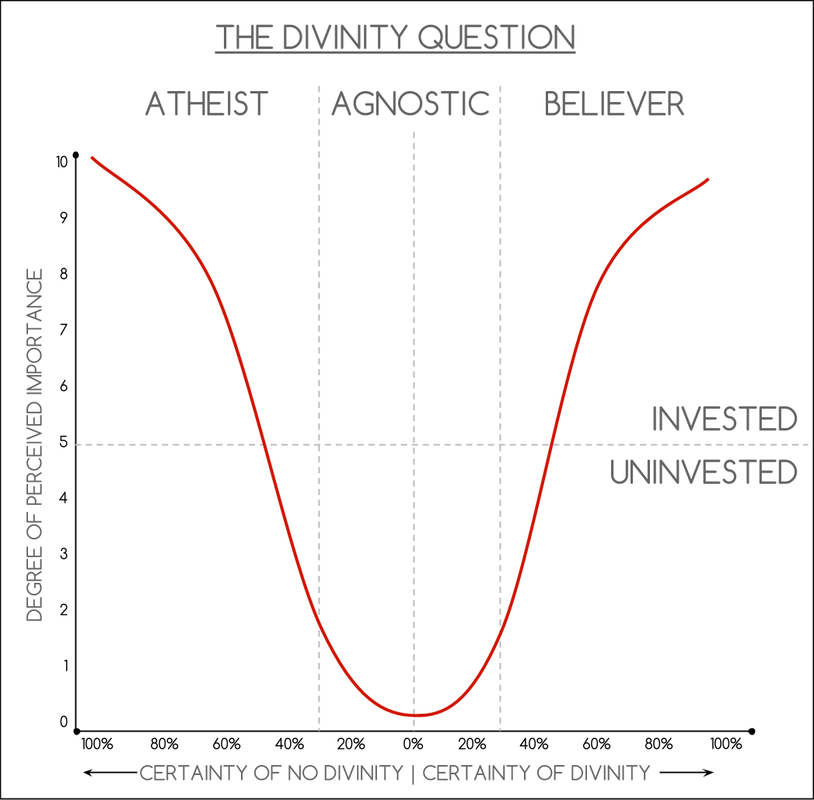"Is God Real?" is perhaps the oldest categorically untestable question remaining to man, and one frequently discussed across the world. This chart maps the spectrum on which our opinions can exist.
| The red logic curve represents the relationship between the certainty of a belief and the vested interest in its validity. The more importance we place on an issue, the stronger our views on it are; and the stronger our views on an issue are, the more importance we assign it. This cyclic phenomenon is known as a "neural feedback loop" and characterises the dynamic between our perceptions, beliefs, and identity. Not everyone's view on the Divinity Question exists on or even near the red logic curve; it's only a visual indicator of how common it is for strong beliefs to follow a pattern of placing high importance and investment in a topic. |
Whatever your own beliefs, opinions, or hypotheses are as to the answer of the Divinity Question, its the strength of those views that will determine how difficult it will be for you to alter them in the face of new evidence. The danger of forming strong opinions (click here for a definition of opinions, beliefs, and convictions) on untestable matters is that if and when empirical evidence does become available, our convictions may be so strong that we reject that evidence outright. Sadly, this is a common phenomenon among humans, since evaluating evidence contrary to our convictions actually forces us to question the parts of our identity that are based on those convictions, which is a major life event.


 RSS Feed
RSS Feed
